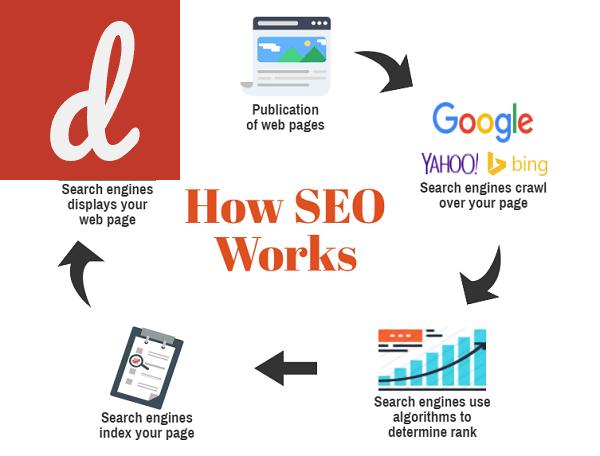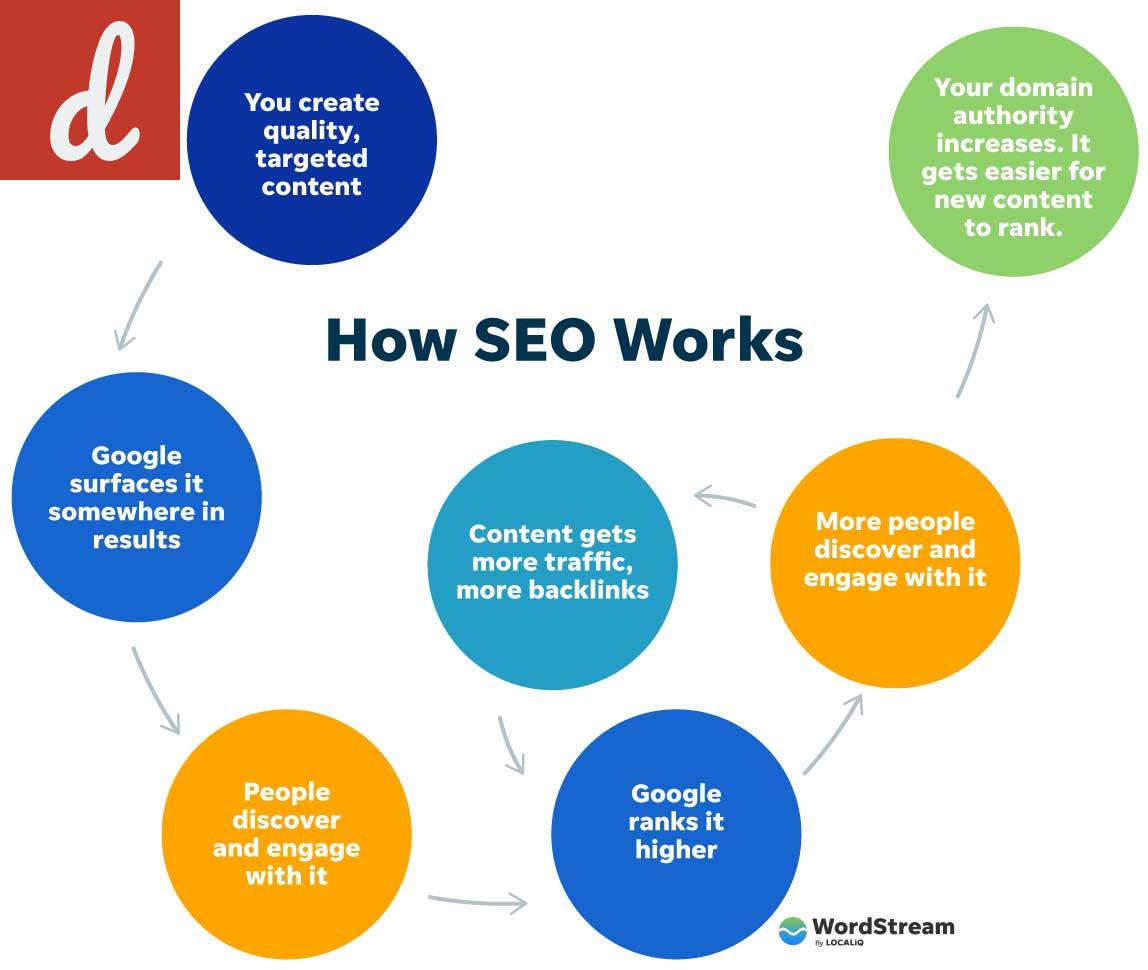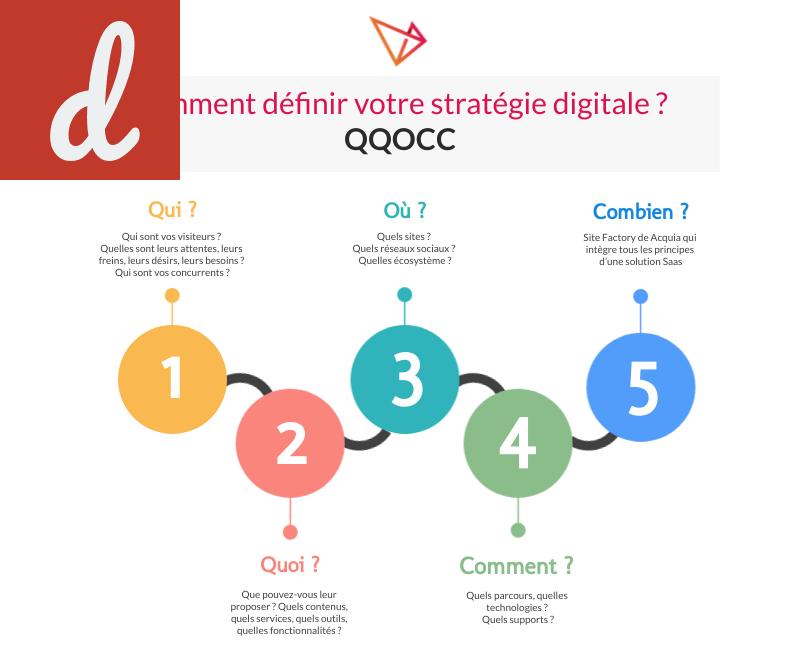Demystifying SEO: A Beginner's Guide to Digital Marketing
In today's digital age, having an online presence and visibility is crucial for businesses to thrive. One of the key components of online success is search engine optimization (SEO). SEO helps businesses improve their visibility on search engines like Google, bringing in organic traffic and potential customers to their websites. If you're new to the world of digital marketing, understanding SEO can feel overwhelming. But fear not, this beginner's guide will demystify SEO and help you navigate the world of online marketing.
Before we dive into the nitty-gritty details, let's start with the basics. SEO is the process of optimizing your website and its content to rank higher in organic search engine results. When a user searches for a specific keyword or phrase, search engines like Google analyze various factors to determine the most relevant results. By implementing SEO strategies, you increase your chances of appearing on the first page of search results, where the majority of clicks happen.
- List item 1
- List item 2
So, why is SEO important? Well, research shows that the majority of users click on one of the top five organic search results. If your website isn't on the first page, it's likely that you're missing out on valuable traffic and potential customers. SEO helps you establish a strong online presence, increase brand visibility, and drive targeted organic traffic to your website.
Now that we understand the importance of SEO, let's explore some key strategies to help you optimize your website for search engines.
Keyword Research: Keywords are the foundation of SEO. They are the words and phrases users type into search engines when looking for information. Conducting thorough keyword research allows you to identify the terms your target audience is using, so you can optimize your content around them. Tools like Google Keyword Planner and SEMrush can help you identify relevant keywords with high search volumes.
On-Page Optimization: On-page optimization involves optimizing various elements on your website to make it search engine friendly. This includes optimizing meta tags (title tags and meta descriptions), incorporating keywords into your content, using appropriate header tags (< h1 >, < h2 >), and creating unique and informative page content.
Link Building: Building high-quality backlinks is an essential SEO strategy. Backlinks are links from other websites that point to your site. Search engines view backlinks as votes of confidence, indicating that your content is trustworthy and valuable. Engage in outreach, guest blogging, and content promotion to earn backlinks from authoritative and relevant sources.
Mobile Optimization: With the majority of internet traffic coming from mobile devices, optimizing your website for mobile is crucial. Ensure your website is mobile-friendly, loads quickly, and offers a seamless user experience across different devices. Mobile optimization is also a ranking factor for search engines.
Content Creation: Content is king in the world of SEO. Creating high-quality, informative, and engaging content not only attracts users but also helps search engines understand the relevance of your website. Incorporate your target keywords strategically throughout your content and regularly update your website with fresh, valuable content.
In conclusion, SEO plays a vital role in digital marketing. By implementing effective SEO strategies, businesses can improve their online visibility, drive organic traffic, and increase their chances of reaching potential customers. Remember to invest time and effort into keyword research, on-page optimization, link building, mobile optimization, and content creation. With consistent effort and a deep understanding of SEO, you'll be well on your way to digital marketing success.
Unlocking the Secrets of SEO: Understanding the Power of Digital Marketing
In today's digital age, SEO or Search Engine Optimization has become an indispensable tool for businesses to enhance their online presence and drive organic traffic to their websites. SEO is the practice of optimizing a website's content to improve its visibility and ranking on search engine results pages (SERPs). By understanding and harnessing the power of SEO, businesses can maximize their online reach and connect with their target audience more effectively.
At its core, SEO is all about understanding how search engines work and what users are searching for. Major search engines such as Google, Yahoo, and Bing use complex algorithms to determine the relevance and authority of websites. By tailoring your website's content and structure to align with these algorithms, you can increase your chances of ranking higher on SERPs and attracting more visitors.
- Improved visibility: SEO helps your website gain higher visibility on search engine results pages, making it easier for users to find you when they search for relevant keywords or phrases.
- Increased organic traffic: By optimizing your website's content, you can attract more organic traffic from search engines. This means that people who are actively searching for products or services similar to yours are more likely to find and visit your website.
In order to unlock the secrets of SEO and leverage its power, there are several key factors to consider:
1. Keyword research: Keywords are the foundation of SEO. Identifying the right keywords relevant to your business is essential for optimizing your website's content. Research popular keywords and phrases that are commonly searched by your target audience and incorporate them naturally into your website's content.
2. On-page optimization: On-page optimization refers to optimizing elements on your website such as meta tags, headings, URLs, and internal linking structure. Make sure your page titles and meta descriptions contain relevant keywords and provide a clear and concise description of your content.
3. High-quality content: Content is king in the world of SEO. Creating high-quality, engaging, and relevant content is crucial for attracting and retaining visitors. Regularly update your website with fresh and informative content that provides value to your audience.
4. Link building: Building high-quality backlinks from reputable websites can significantly improve your website's authority and credibility. Seek opportunities to guest post on relevant websites, engage with influencers, and participate in industry-related forums and communities to build valuable backlinks to your site.
5. Mobile optimization: With the rise of mobile devices, it is essential to ensure that your website is fully optimized for mobile users. Mobile-friendly websites tend to rank higher on SERPs, as search engines prioritize user experience and mobile responsiveness.
Unlocking the secrets of SEO can be a complex and ongoing process. It requires continuous monitoring, analysis, and adaptation to keep up with changing algorithms and user behavior. Consider investing in professional SEO services to help you navigate the intricacies of SEO and achieve optimal results for your business.
By understanding and implementing the fundamentals of SEO, businesses can unlock the power of digital marketing and reach their target audience more effectively. The secrets of SEO lie in optimizing your website's content, recognizing the importance of relevant keywords, and staying up-to-date with industry trends. Embrace the power of SEO and watch your online presence soar!
Getting Ahead with SEO: The Influence of Digital Marketing Strategies
With the rapid growth of the digital era, businesses need to adapt and stay ahead of the competition. One powerful tool in their arsenal is Search Engine Optimization (SEO). By utilizing effective SEO techniques, businesses can enhance their online visibility and drive targeted traffic to their websites. In today's article, we will discuss how digital marketing strategies can greatly influence SEO.
When it comes to SEO, one of the most important factors is keywords. These are the phrases or words that users type into search engines when looking for information or products. Digital marketing strategies can help identify the right keywords to target by conducting thorough keyword research. By understanding what keywords are most relevant to their target audience, businesses can optimize their website content accordingly.
- List item 1: Content Creation
- List item 2: Social Media Engagement
Content Creation: In the realm of digital marketing, content is king. Creating high-quality, informative, and engaging content not only attracts users but also improves search engine rankings. By incorporating relevant keywords naturally throughout the content, businesses can increase their chances of ranking higher in search results.
Social Media Engagement: Social media platforms have become an integral part of people's lives. They provide businesses with an excellent opportunity to engage with their audience and drive traffic to their website. By sharing valuable content on social media and encouraging users to share, like, and comment, businesses can increase their online visibility and improve their SEO performance.
Another crucial aspect of digital marketing strategies is link building. Search engines consider backlinks (links from other websites to your own) as a vote of confidence in your website's credibility and relevancy. By incorporating effective link building strategies, businesses can improve their website's authority and rankings in search engine results.
Furthermore, digital marketing strategies can also help with website optimization. Optimizing website loading speed, mobile responsiveness, and user experience all contribute to better search rankings. By ensuring their website is user-friendly and provides a seamless browsing experience, businesses can increase their chances of getting ranked higher in search engine results.
In conclusion, digital marketing strategies play a significant role in influencing SEO. By incorporating effective SEO techniques such as keyword research, content creation, social media engagement, link building, and website optimization, businesses can get ahead of the competition and enhance their online visibility. It is essential for businesses to understand the impact of digital marketing strategies and implement them to stay relevant in today's digital landscape.

The Art of SEO: Maximizing the Potential of Digital Marketing
In today's digital age, search engine optimization (SEO) has become an essential tool for businesses to maximize their online presence and increase their visibility to potential customers. The art of SEO lies in strategically optimizing websites to improve their search engine rankings and drive organic traffic.
SEO is a multifaceted discipline that incorporates various techniques and strategies to improve a website's performance in search engine results. From keyword research to on-page optimization and link building, there are several aspects that contribute to an effective SEO strategy.
- Keyword research: The foundation of any successful SEO campaign is thorough keyword research. Understanding the keywords and phrases that your target audience is searching for is crucial in optimizing your website to rank for relevant searches.
- On-page optimization: On-page optimization involves optimizing your website's content and structure to make it more search engine-friendly. This includes optimizing meta tags, headings, and URLs, and ensuring that your content is valuable, relevant, and well-structured.
Effective on-page optimization not only helps search engines understand your website better but also improves the user experience, leading to increased engagement and conversions.
Off-page optimization: Off-page optimization refers to activities outside of your website that can improve its search engine rankings. This includes building high-quality backlinks from reputable websites, social media marketing, and online reputation management.
By establishing a strong online presence through off-page optimization, you can enhance your website's authority and credibility in the eyes of search engines.
Mobile optimization: With the increasing use of mobile devices, it is crucial to ensure that your website is mobile-friendly. Mobile optimization involves creating a responsive design, improving page load times, and optimizing content for smaller screens.
Search engines prioritize mobile-friendly websites, and a lack of mobile optimization can negatively impact your search engine rankings and user experience.
Content marketing: Content is an integral part of SEO. Creating high-quality, valuable, and relevant content not only attracts and engages users but also helps search engines understand the purpose and relevance of your website.
By incorporating relevant keywords and providing informative content, you can optimize your website for search engines while providing value to your audience.
SEO is an ongoing process that requires continuous monitoring, analysis, and adjustment. Search engines consistently update their algorithms, and staying up-to-date with the latest SEO trends and best practices is essential to maintain and improve your website's rankings.
In conclusion, the art of SEO lies in maximizing the potential of digital marketing. By strategically optimizing your website's on-page and off-page elements, mobile compatibility, and content, you can improve your search engine rankings and drive organic traffic to your website. Incorporating SEO into your digital marketing strategy is essential to stay competitive in today's digital landscape.
Mastering SEO: Harnessing Digital Marketing for Success
In today's digital age, having a strong online presence is crucial for businesses to succeed. With millions of websites and online platforms competing for attention, it can be challenging to stand out from the crowd. This is where search engine optimization (SEO) comes into play.
SEO is the practice of optimizing a website to improve its visibility and ranking on search engine results pages (SERPs). The higher your website ranks, the more likely it is to receive organic traffic from users searching for relevant keywords. In other words, SEO helps potential customers find your website before your competitors'.
- List item 1: Keyword Research
- List item 2: On-Page Optimization
One of the first steps in mastering SEO is keyword research. Keywords are the terms or phrases that users enter into search engines to find information. By identifying the right keywords for your business, you can tailor your website content to match what potential customers are searching for.
Once you have identified your keywords, the next step is on-page optimization. This involves optimizing various elements on your website, such as title tags, meta descriptions, headers, and content, to align with your chosen keywords. By highlighting the keywords in these areas, search engines understand the relevance of your webpage to a specific search query.
- List item 1: Backlink Building
- List item 2: User Experience
Aside from keyword research and on-page optimization, other key aspects of SEO include building backlinks and providing a seamless user experience. Backlinks are links from other websites that point to your website. Search engines view backlinks as a vote of confidence in your content's quality and relevance. The more high-quality backlinks you have, the more authority your website will gain in the eyes of search engines.
Furthermore, user experience plays a significant role in SEO. Search engines prioritize websites that offer a positive user experience, such as fast loading times, easy navigation, and mobile responsiveness. Ensuring that your website is user-friendly helps to increase engagement and reduce bounce rates, ultimately boosting your website's visibility in search results.
In conclusion, mastering SEO is essential for businesses looking to harness the power of digital marketing for success. By conducting thorough keyword research, optimizing on-page elements, building backlinks, and prioritizing a positive user experience, you can improve your website's visibility and ranking on search engine results pages. So, invest your time and effort into SEO, and watch your online presence soar above your competitors.



Jan 01, 2024 John Smith says :
Great article! Understanding how SEO works is crucial in today's digital marketing landscape. SEO plays a vital role in driving organic traffic to websites and improving their visibility on search engines. By optimizing our online presence, businesses can attract more potential customers, increase their brand awareness, and ultimately, drive more conversions. This article does an excellent job explaining the impact of digital marketing and how SEO contributes to its success. Well done! Les Avantages D'une Plateforme De Marketing Digital Tout-en-un